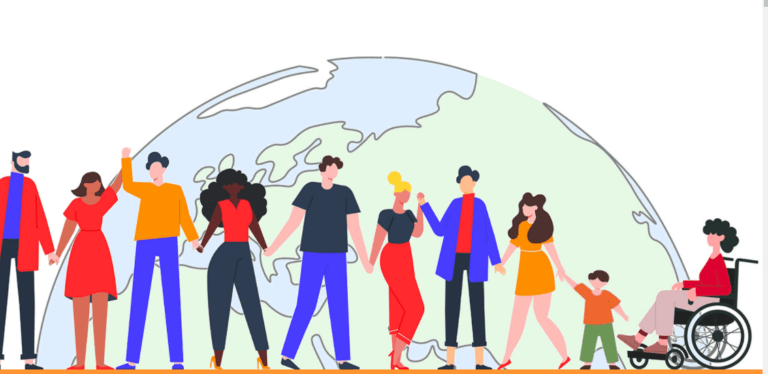[Brussels, 17 February 2016] In 2015, the European Women’s Lobby (EWL) played an active role as a member of the Civil Society Alliance which coordinated the NGO mobilisation during the European Year for Development (EYD2015). After a year full of activities and action, policy recommendations have been unveiled at the closing event of the Year in Luxembourg last December. The EWL is proud to have contributed to these recommendations, through an article of its Policy and Campaigns Director Pierrette Pape on “Women and girls : half the population, half the future!”. You can read her text below.
Background
The idea for the European Year for Development (EYD) came from CONCORD. It was CONCORD that initiated, inspired and coordinated the lobbying of the relevant EU institutions to make it happen. Once the idea had been turned into a political reality, CONCORD had considerable – and substantial – input into shaping and preparing the year.
Recognizing CONCORD’s pivotal role in the genesis of this special year, the EU institutions lent it their support in this project and invited it to convene and coordinate the activities of a broad alliance of civil society actors, recognising them as a group of stakeholders that were essential to achieving the objectives of the European Year for Development.
This EYD Civil Society Alliance succeeded in mobilising hundreds of very different organisations – from the social sector, the humanitarian sector, the environmental sector, the fair-trade sector, local authorities, youth movements, women’s movements and many others – all of which felt that, in one way or another, there was something at stake for them in the European Year for Development. They all shared the belief that greater awareness and a stronger engagement of citizens across the EU were vital, in order to achieve their objectives and increase public ownership of development cooperation in the EU and its Member States.
As a tangible legacy of the partnership and cooperation between civil society organisations from many diverse sectors, and our year-long dialogue with and between citizens, we wish to anchor our involvement in this European Year in the following set of policy recommendations which we put to decision-makers around the world, in particular those within the European Union and its Member States.
These recommendations reflect the engagement of citizens, and their critical thinking, in the dialogue about development cooperation.
Women and girls: half the population, half the future!
Women and girls are half of the world’s population. It obviously won’t be possible to implement Agenda 2030 without full participation by women and girls and the elimination of the structural inequalities they face.
2015 is both an exciting and a challenging time for women and girls worldwide.
Exciting because the international community commemorated the 20th anniversary of the Beijing Platform for Action, a human rights instrument for women and girls adopted in 1995 that laid the foundations for policy action aimed at ending the systemic discrimination against women and girls. Exciting also because one of the newly adopted Sustainable Development Goals (SDGs) is devoted to achieving women’s empowerment and gender equality (Goal 5).
But these are also challenging times as, in a world still organised around stereotypical views of women’s and men’s roles, the reality faced by women and girls remains invisible. Challenging especially in Europe, where the illusion of gender equality leads decision-makers to ignore calls from women’s organisations for action and support.
In Europe and worldwide, women’s human rights face an unprecedented backlash, with attacks on women’s access to economic independence, their bodily integrity and their security, as well as more frequent attacks on civil society’s space and funding. The EU’s role is to make sure that all its policies guarantee the protection of women’s human rights, in all sectors, in its internal and external policies.
In all countries, women and women’s organisations play an important role in attaining equality, justice and dignity. No further evidence is needed that equality/social justice and environmental/economic sustainability are two sides of the same coin.
We call on the EU to mainstream women’s human rights in all its work and to walk the talk, based on the commitments it made throughout 2015, including as part of EYD2015.



